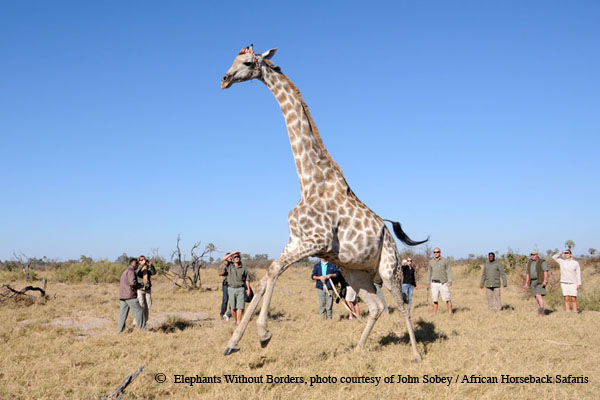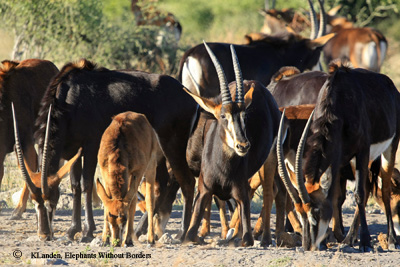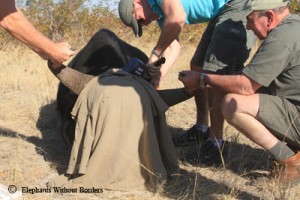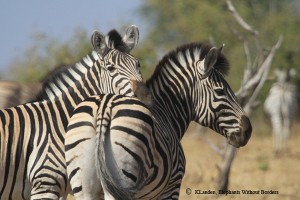EWB’s Exciting, New Large Herbivore Research
Throughout much of Africa, large herbivore and carnivore populations have been affected by habitat destruction and excessive hunting. Demand for additional land for pastoral and arable agriculture has resulted in domestic animals and crop fields replacing the diverse communities of wild herbivores over large areas. Concern has recently been expressed about the status of several large mammals all over Africa and in Botswana, specifically in the Okavango Delta, one of the largest Ramsar sites in the world. The causes for the observed declines are not well understood but it has been postulated that they could be related to a number of factors including changing flooding regime, habitat fragmentation, anthropogenic pressures and possibly an expanding elephant population.
Fortunately, the Botswana government has realized that the fundamental key to effective wildlife conservation and management is long-term, science-based research, and thus has granted Elephants Without Borders (EWB) a research permit to study the population status and spatial ecology of large herbivores in northern Botswana. Aside from EWB’s ongoing elephant research, these new projects, in collaboration with the Department of Wildlife and National Parks (DWNP), are in response to recently published evidence of declines in wildlife population numbers across northern Botswana.
Assessing the impacts of current land use polices and practices on the long-term sustainability of northern Botswana’s ecosystems will require in depth studies at larger spatial and temporal scales than has been the case to date.
While there are some obvious explanations for some wildlife population downward trends, such as recurrent droughts, the blocking of migration routes by veterinary fences and other land-use related issues, the population dynamics and spatial ecology of large herbivores across northern Botswana is still not fully understood. While site-specific studies have provided vital information, a multi-species landscape approach to understanding the distribution, abundance and movements of wildlife across northern Botswana is now needed.
This month EWB began their herbivore ecology research by collaring buffalo, giraffe and zebra in NG26 within the Okavango Delta providing an ideal location from which to base a pilot study, to begin to understand the factors affecting wildlife populations. Further wildlife monitoring will be conducted by EWB’s projects throughout Northern Botswana, incorporating Msc, Doctoral and Post-doctoral researchers from Universities in Botswana, the United States, Australia, South Africa, the UK and Europe thus far, to gather and analyze the data sets.
To learn more, contact EWB at info@elephantswithoutborders.org. Follow our website at www.elephantswithoutborders.org and Facebook at www.facebook.com/elephantswithoutborders
For this initial pilot phase EWB would like to Thank and acknowledge: Botswana’s Department of Wildlife and National Parks, the Paul G Allen Family Foundation, the San Diego Zoo, Mr. Harry Ferguson, and staff from Abu Camp and African Horse Back Safaris.

The first giraffe ever collared in Botswana will provide insight into their population dynamics and movements
Tags: Abu, africa, botswana, conservation, DWNP, elephants, elephants without borders, Okavango delta, research, wildlife











Trackbacks/Pingbacks